It’s time we recognize the role of women in Belize’s small-scale fisheries sector and provide a space for them to discuss the challenges and opportunities they face. That’s what Dr. Sandra Grant had on her mind when she approached me in 2017 to seek WCS’s support in convening Belize’s first Women in Fisheries Forum (WIFF).
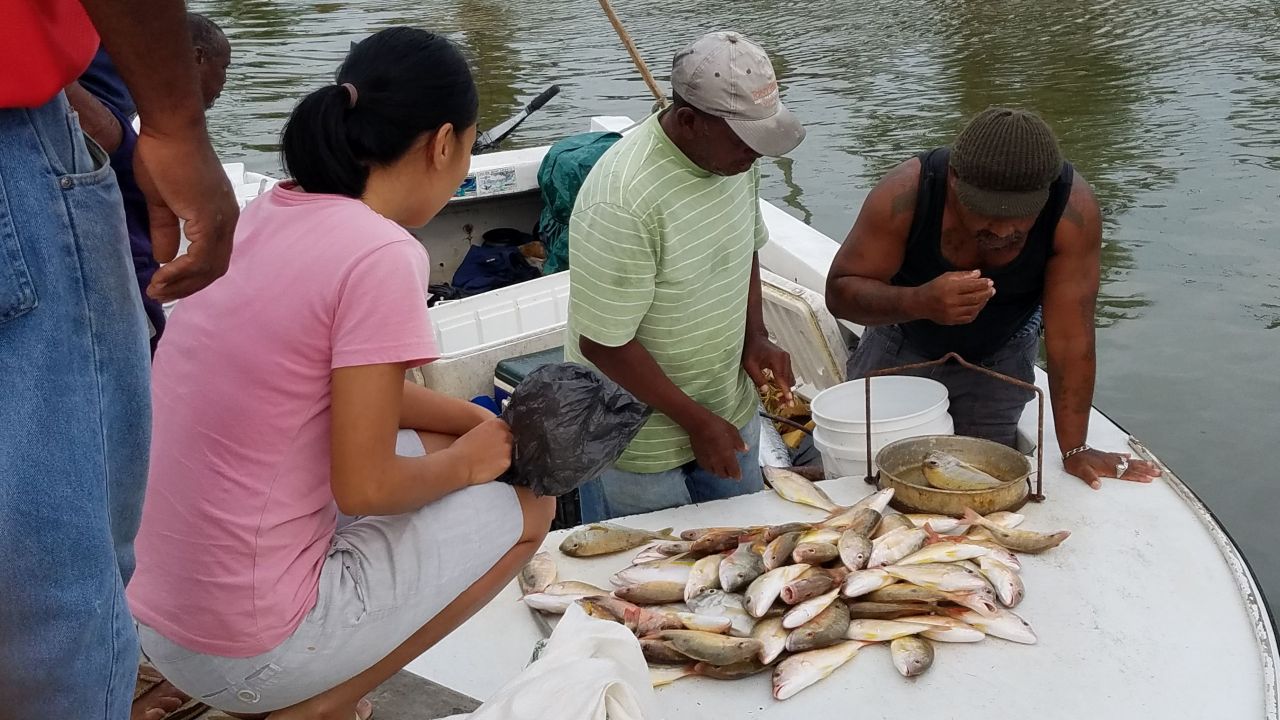
Woman purchasing seafood at a local fish market in Belize City. Photo Credit V. Alamilla/WCS
As the former Coordinator for the Marine Conservation and Climate Adaptation Project, Sandra knew, as I did, that despite the fact that women represent about 50 percent of the workforce in the fisheries sector globally (predominantly in the processing of seafood), for the most part, their contribution is not recognized nationally.
When asked about fishing, fishers, and fisherfolk we often only think about those engaged in the act of fishing while at sea. In the case of Belize, men represent 97 percent of commercial fishers and women 3 percent. Hence our view of the sector is often skewed towards men.
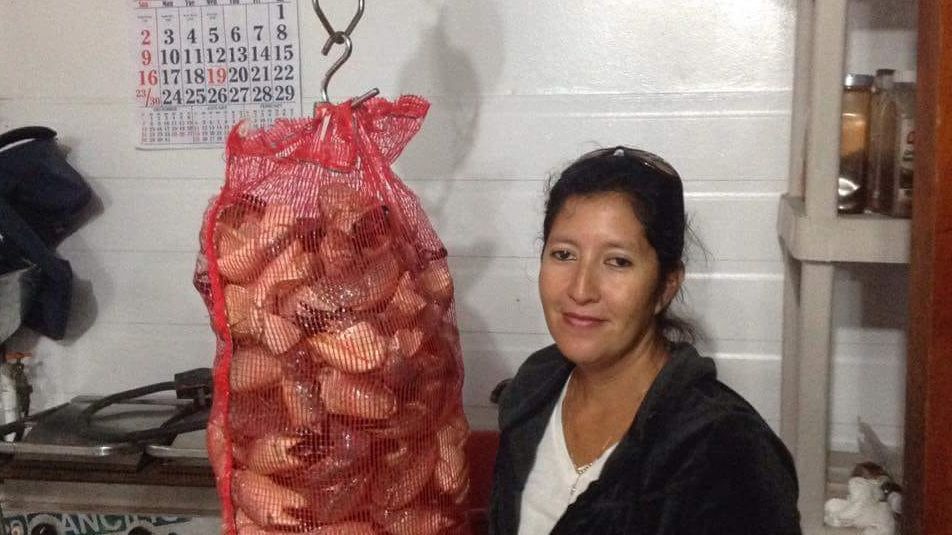
Maria Allen, fisher and manager of her family’s fishing business in Caye Caulker Village, weighing stone crabs claws for sale to local restaurants. Photo Credit: M. Allen
However, a closer look at the sector reveals a hidden group of actors: women who are often involved in post-harvest and informal day-to-day fishing activities within the family setting, such as scaling and cleaning catch, purchasing goods and cooking meals for fishing trips, and arranging sale of catch to name a few. Thus, it was predictable that when we shared the idea of having the forum, we were met with many “whys.”
“Why engage women in fisheries? Do they even represent a significant stakeholder group? Why have a closed meeting for women? Why can’t the men be present? Why even have this discussion in the first place? We don’t want to start any type of women’s movement in the sector. Things are good as is.”
To counter the misconceptions implied by those “whys,” we saw the need for bringing recognition to these unseen women. As women involved in fisheries management in Belize who actively engage with fishing communities, Sandra and I saw the many roles women were playing in order to sustain the sector, yet these same women were absent from the decision-making meetings and consultations that would affect them.
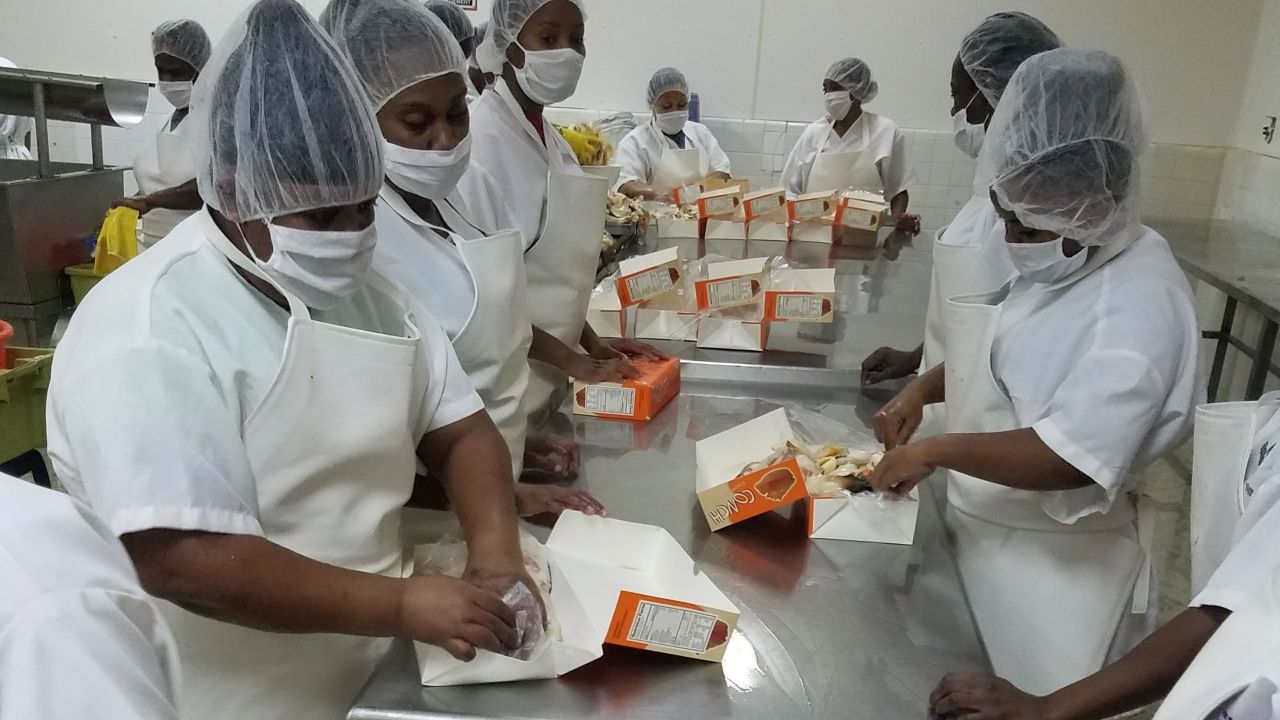
Female processors packaging Queen Conch at a local fishermen cooperative. Photo Credit: S. GRANT/MCCAP
Our vision for the WIFF was to help those involved in fisheries management to recognize that by overlooking women’s contributions to the fisheries sector, we are reducing their access to much-needed resources and inadvertently increasing their vulnerability by limiting their involvement in the management of their livelihood.
The first WIFF was held in June 2017 under the theme, “It’s about conversations that focus on recognizing women in the fishing industry.” A total of 52 women attended representing nine fishing communities that work along the entire fisheries value chain, some with over 40 years of experience working in the sector.
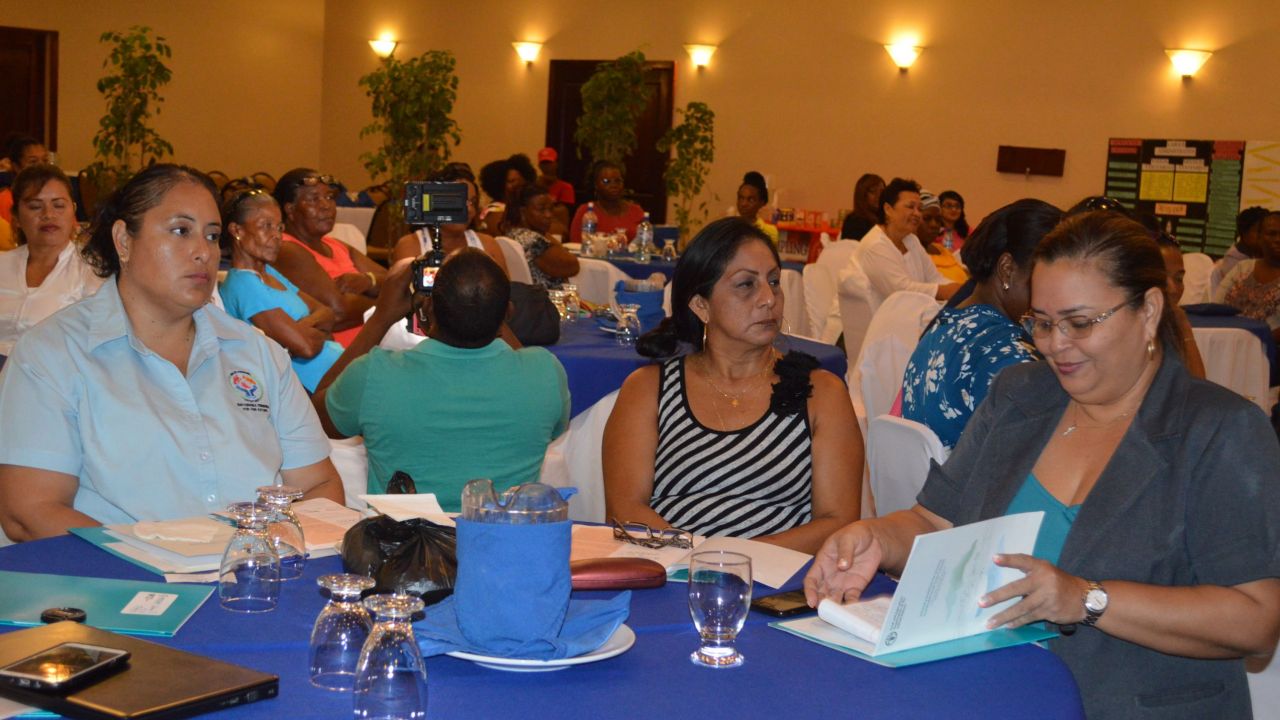
Participants at Belize’s first Women in Fisheries Forum. Photo Credit: S. Grant/MCCAP
As described by one of the participants, “the WIFF provided a space for us to learn, share, network, understand, and value the many roles we play within the sector.” What was initially viewed by some as an unnecessary event—since women in fisheries are an anomaly to them—led to the creation of an annual event focused on improving the wellbeing of all persons engaged in Belize’s small-scale fisheries sector.
Since 2017, five WIFFs have been held, ranging in topics from “promoting gender equality and equity in fisheries” to “gender and the ocean,” “gender and leadership,” and “gender and climate change.” Over the years, the WIFFs have assisted in socializing numerous regional and international policies and guidelines pertaining to fisheries, such as the Voluntary Guidelines for Securing Sustainable Small-Scale Fisheries in the Context of Food Security and Poverty Eradication.
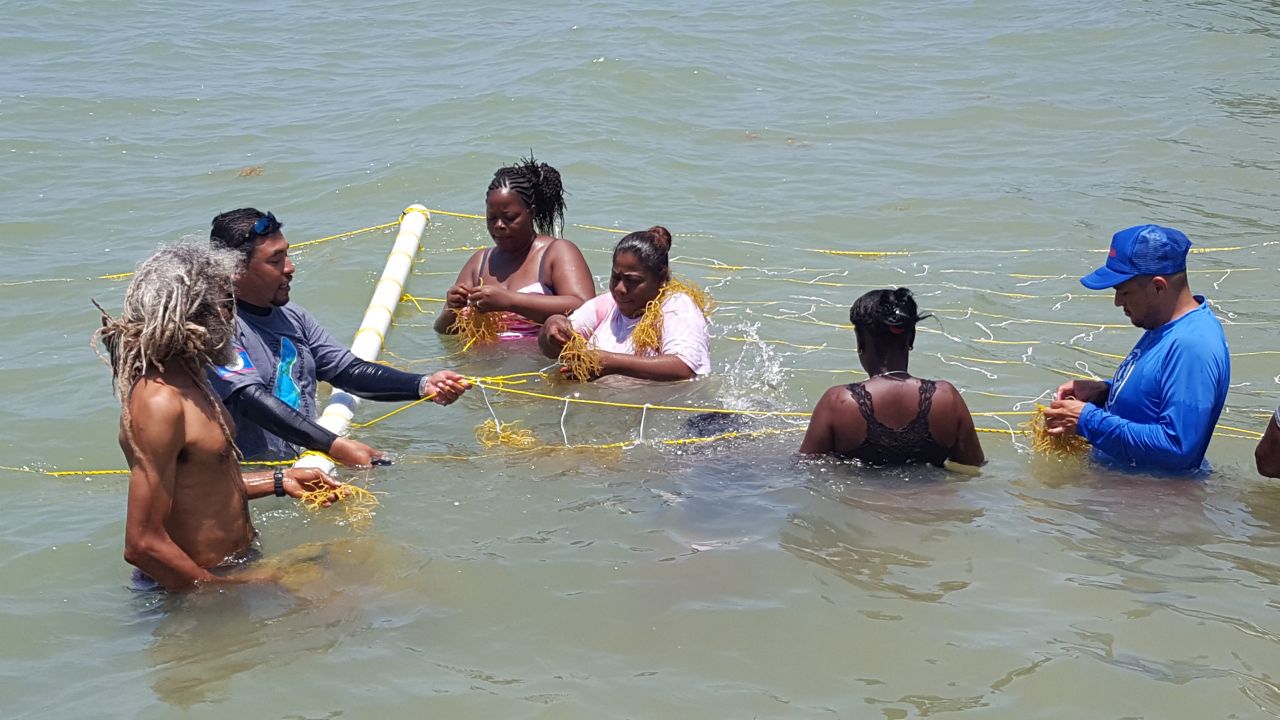
Women participating in the third WIFF at Dangriga Town, learning to prepare a seaweed farm. Photo credit: WCS
Why do we continue to convene these forums? The answer to that is easy. The WIFF remains the only space where women across Belize involved in fisheries collectively gather to discuss issues pertaining to them. It continues to bring national attention on the need to engage women in fisheries management. The forums place a special emphasis on the social protection of women, promoting a household approach when addressing livelihood needs in fishing communities.
Furthermore, the forums have highlighted the link between climate change and its impact on the ocean, gender and livelihoods, as well as the value of equipping women with the skills needed for greater participation in leadership roles and decision-making positions. The WIFFs have also led to several capacity-building sessions with the women in the area of small-business development and management.
Perhaps most importantly, these forums have allowed for a much-needed discussion regarding gender and fisheries in Belize, with more organizations becoming cognizant of the need to engage women in fisheries. Although tremendous progress has been made over the years, significant work remains to evolve a gender-equitable fisheries sector.
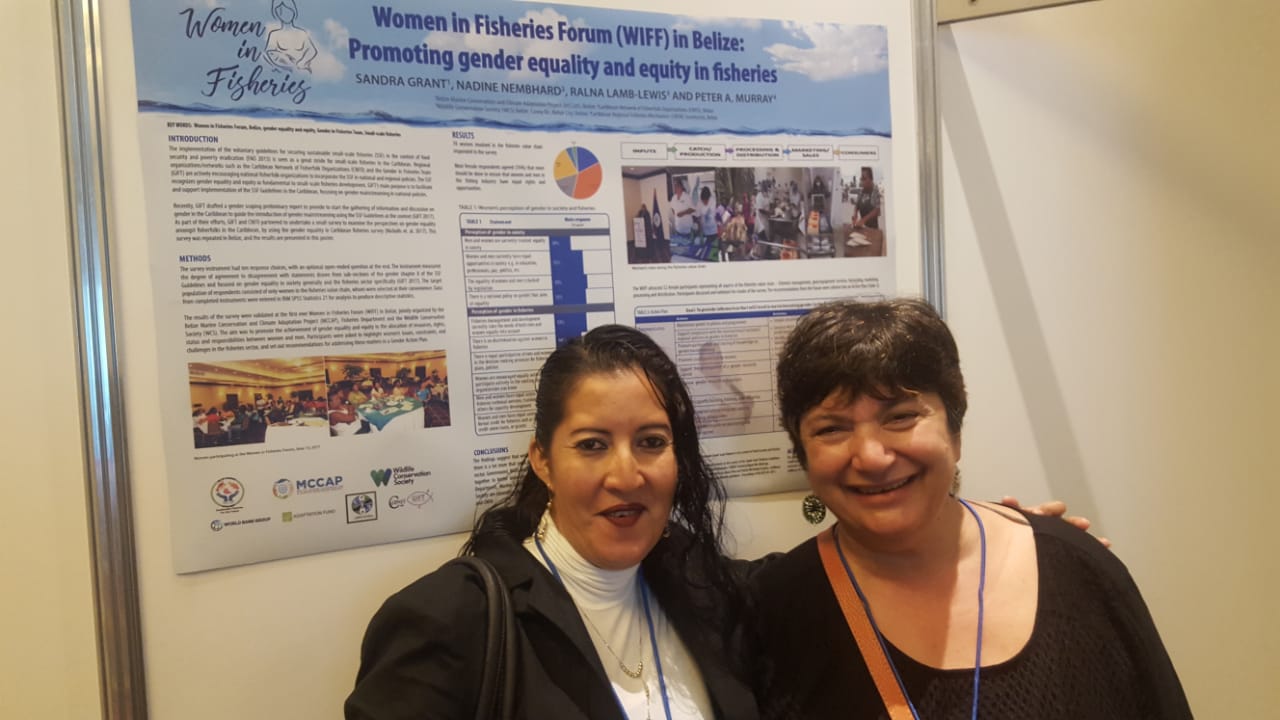
Maria Allen and a female fisher presenting their WIFF poster at the Gulf and Caribbean Fisheries Institute conference poster session in Merida, Mexico. Photo Credit: S. Grant/MCCAP
Recently, the Government of Belize developed a Gender Strategy for Belize’s Fisheries and Coastal Zone Sector, which recognizes the need for further research and data gathering to develop informed policies to allow for the mainstreaming of gender equality and equity within the sector. It’s an important step that we must continue working to build upon.
This year’s WIFF is currently being planned for June, recognized nationally as Fisherfolk month, under the theme Gender and Livelihoods.
